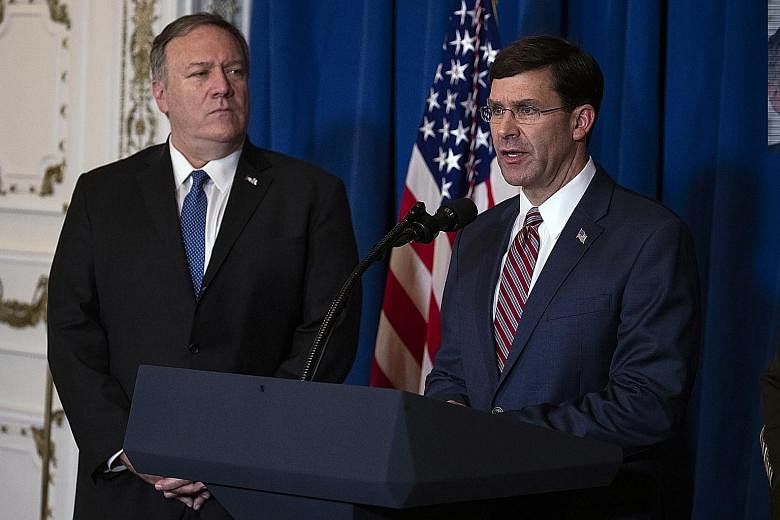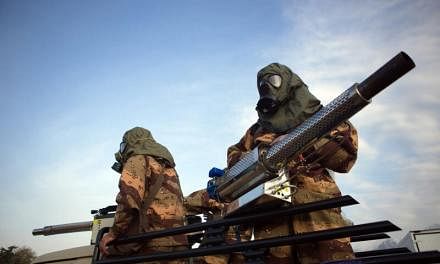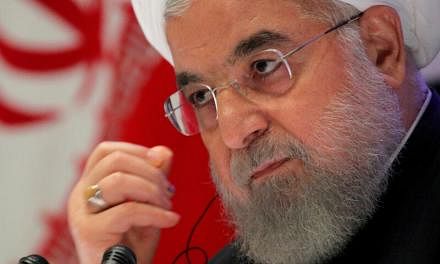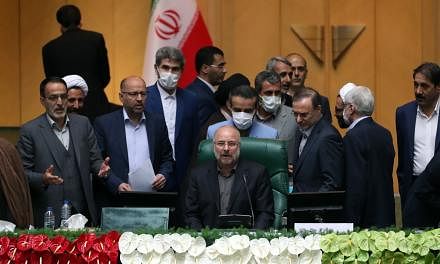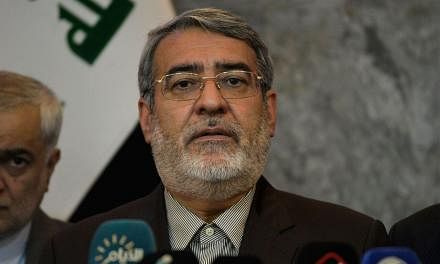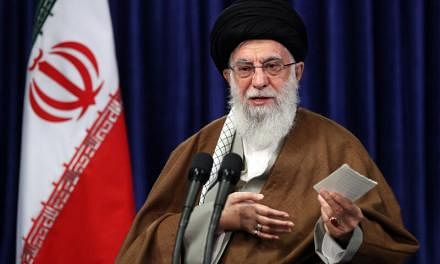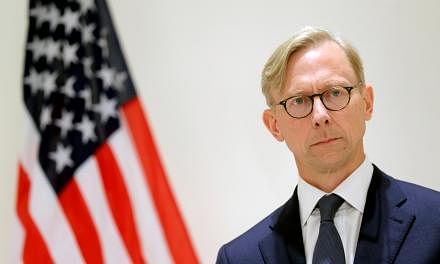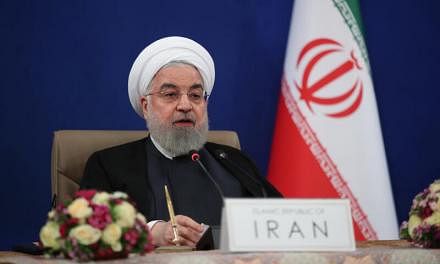BAGHDAD/WASHINGTON • The US has no plans to pull its troops out of Iraq, Defence Secretary Mark Esper has said, following reports of an American military letter informing Iraqi officials about the repositioning of troops in preparation to leave the country.
Word of the letter came on Monday, a day after Iran's demand for US forces to withdraw from the region gained traction with Iraq's Parliament passing a resolution calling for all foreign troops to leave the country.
The call came after last Friday's drone strike in Baghdad ordered by US President Donald Trump, which killed Iranian military commander Qassem Soleimani, widely seen as Iran's second-most powerful figure behind Supreme Leader Ayatollah Ali Khamenei.
"There's been no decision whatsoever to leave Iraq," Mr Esper told Pentagon reporters.
"I don't know what that letter is... We're trying to find out where that's coming from, what that is. But there's been no decision made to leave Iraq. Period."
Mr Esper also said the US was still committed to countering the Islamic State in Iraq and Syria (ISIS) militants in Iraq, alongside America's allies and partners.
The letter said there would be positioning of forces "over the course of the coming days and weeks to prepare for onward movement".
It also said the coalition forces would be using helicopters to evacuate from Iraq. Several were heard flying over Baghdad on Monday night, although it was not clear if that was a related development.
The letter was signed by the US Marine Corps' Brigadier-General William Seely III, commanding general of the US-led military coalition against ISIS, and addressed to the Iraqi Defence Ministry's Combined Joint Operations Baghdad.
The authenticity of the letter had been confirmed to Reuters by an Iraqi military source.
The letter caused confusion about the future of about 5,000 American troops in Iraq.
The top US military officer said the letter was a poorly worded draft document meant only to underscore increased movement by US forces.
"Poorly worded, implies withdrawal. That's not what's happening," said Army-General Mark Milley, chairman of the military's Joint Chiefs of Staff.
The killing of Iran's Major-General Soleimani has prompted concern around the world that a broader regional conflict could flare.
Iran has announced that it would retreat further from a 2015 nuclear pact, which it sealed with Britain, China, France, Russia, the US and Germany. But the pact has been hanging by a thread since the US' withdrawal from it in May 2018.
Teheran has already breached many of the deal's restrictions on its nuclear activities and it said on Sunday it would abandon limitations on enriching uranium.
It would, however, still continue to cooperate with the United Nations nuclear watchdog and could quickly reverse its steps if US sanctions are removed.
The Trump administration has pursued a "maximum pressure" campaign against Iran that it said could help pressure Teheran to come to the negotiating table.
Following the killing of Maj-Gen Soleimani, Mr Trump is confident he can still renegotiate a nuclear deal with Teheran, White House adviser Kellyanne Conway said on Monday.
When asked if Mr Trump believes he can still get Iran to negotiate a new nuclear agreement, she said: "He said he's open. If Iran wants to start behaving like a normal country... sure, absolutely."
Mr Trump later took to Twitter to reiterate the White House stance that "Iran will never have a nuclear weapon" but gave no other details.
In the US, the Democrats were outraged that Mr Trump had failed to inform Congress in advance about the air strike against the Iranian military commander.
But Senate Majority Leader Mitch McConnell said lawmakers should wait for the facts before criticising Mr Trump's decision to kill Maj-Gen Soleimani.
"We can and we should learn more about the intelligence and thinking that led to this operation and the plan to defend American personnel and interests," he said at the US Capitol.
Meanwhile, Iran's Foreign Minister Mohammad Javad Zarif said yesterday that he had been informed by UN Secretary-General Antonio Guterres that Washington had denied him a visa for a trip to the UN headquarters in New York.
Mr Guterres said it was Iran's right to take part in the UN session, the Iranian minister was quoted by semi-official news agency ISNA as saying.
REUTERS, AGENCE FRANCE-PRESSE
